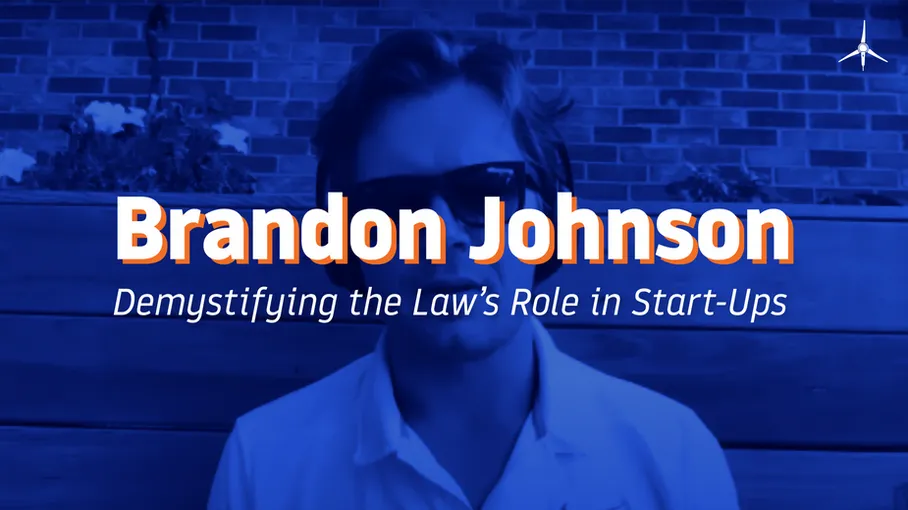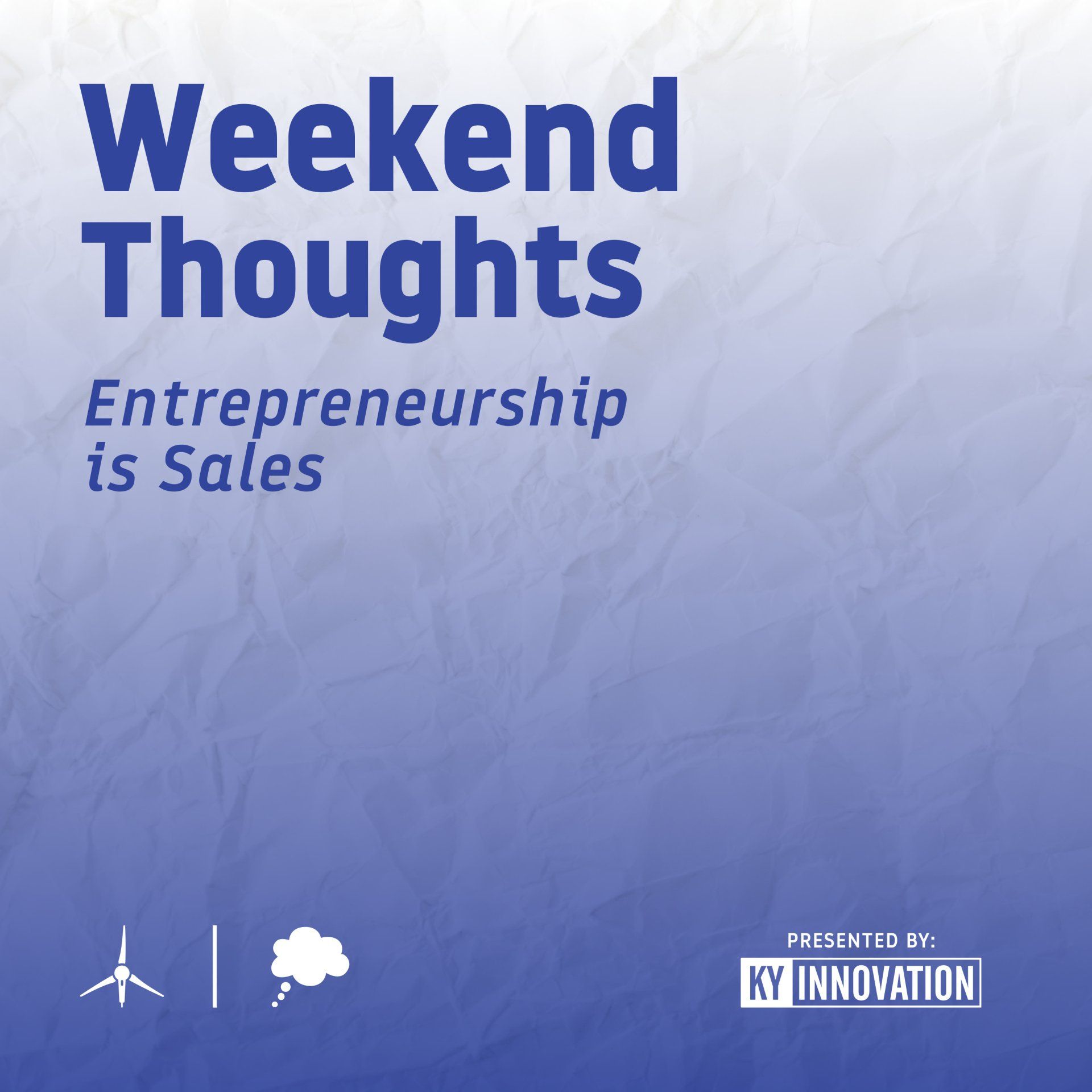Brandon Johnson: Demystifying the Law’s Role in Start-Ups

Entrepreneurs are very familiar with the maxim “wearing different hats”. For most, it is one of the biggest draws to becoming an entrepreneur – an entrepreneur is able to dodge the mundaneness of monotony by having to act as a professional of a variety of different fields. During the early phases of a start-up, an entrepreneur is required to wear different hats to create marketing schemes, sales pitches, accounting records, product design, and much more. One hat, however, as Brandon Johnson of the Johnson Law Group will explain, should not be worn by the entrepreneur. That hat is the lawyer hat. Entrepreneurs at some point during the early phases of the start-up are required to create legal documents, agreements, and contracts that, if done improperly, could cost millions of dollars and mountains of time down the road. In this episode with Brandon, he explains the role a lawyer should play in the start-up process to avoid these expensive pitfalls. He attempts to de-mystify the confusing, but all important, legal process of a start-up.
Brandon Johnson is an experienced and enthusiastic business attorney with a passion for start-ups, business transactions, and estate planning. Brandon was born in Western Kentucky, Fordsville to be exact, he then attended Western Kentucky University for undergrad, and later graduated in 2013 from the University of Louisville Brandeis School of Law. Going into law school, Brandon knew his career goal was to add intellectual capital directly to the entrepreneurs in Kentucky and those that may move to the region. He certainly did not and has not lost sight of that goal. While at Brandeis, he worked in the entrepreneurship clinic to represent a Kentucky healthcare start up. Since graduating, he worked with Papa Johns and Louisville Slugger before, in true entrepreneurial form, he founded his own law firm, The Johnson Law Group. The Johnson Law Group works with start-ups of any industry and has served big name clients like Weather Check, Valiant Construction LLC., and Hillerich & Bradsby Co. His firm truly believes that Kentucky is perfect for a start-up ecosystem because of Kentucky’s people and their hospitality, which his firm furthers by bringing integrity, entrepreneurism, wisdom, and excellence to each step of your start-up’s process.
Brandon advises that an entrepreneur should not attempt to wear the lawyer hat. Entrepreneurs are confident in their abilities, and most times, this is to their benefit, but with the law, this could be a major down fall. In most cases, it will be very time inefficient to attempt to play the role of the lawyer, and, even after all the time has been dedicated, there is no guarantee the best result will be achieved. Lawyers do not make the law complex to get hired – they get hired because the law is complex. A lawyer working for a start-up will be required to tackle varying issues of tax law, business organization law, employment law, contract law, and transaction law, but this is what they are trained to do. Lawyers, whether they admit it or not, are generally huge nerds – they study the law because they are passionate about it – they study businesses because they love business. This love of the law and business makes them proactive with the issues they are hired to prevent. While an entrepreneur may dread trying to untangle and interpret statutes and regulations, a lawyer lives for it, which makes them a crucial and integral part of the start-up team.
Next, Brandon explains the role a lawyer generally plays in the entrepreneur field, and the importance of this role cannot be stressed enough. The law can work for a company, but it can also work against them; it is the role of the lawyer to ensure that the law works for the company whenever possible and to prevent the law from working against the company as best as possible. The access to the internet has made it so much easier to get advice from attorneys; in fact, many lawyers, including Brandon, now will offer free consultations, which can be set up on their websites. The importance of taking advantage of this tool cannot be understated. The law is complex, complicated, and confusing, but a lawyer such as Brandon will be there to explain what actions your start-up needs to take to get the full benefit of the law for your start-up. Whether it be setting up preferable tax structures or employment agreements that plan for best and worst case scenarios, a lawyer will ensure that these steps are taken properly to avoid costly issues down the road.
Most entrepreneurs, however, recognize the importance of a lawyer and will eventually decide to bring one on when an issue arises. While the internet has many boilerplate resources for entrepreneurs that can be of great value, Brandon believes that deciding when a lawyer needs to be involved depends on a risk versus cost analysis. Although most entrepreneurs are capable of figuring out how to incorporate their business, register it with the Secretary of State, and receive their tax identification numbers, when deciding to undertake these tasks without a lawyer, an entrepreneur may miss benefits that a lawyer would have known were there. Further, as more money, more people, and more complex products are added to the mix, the risk involved with trying to play the role of the lawyer becomes greater and greater. Mistakes while bringing on multiple partners or shareholders, hiring employees, or seeking funding very likely could result in losses of millions of dollars down the line. Trained attorneys can foresee, and prevent, these issues from being so costly. Brandon emphasizes that most attorneys are happy to give a free consultation, so why not take advantage of such a meeting, especially when the cost of a misstep could be so high? From there, once you have a clearer and more obvious picture of the legal requirements, you can decide to hire the attorney or proceed on your own.
Next, Brandon gives the benefits of following these legal steps. Specifically, he notes that incorporating your business gives the massive benefit of personal liability protection. Personal liability protection prevents creditors of the start-up from being able to reach the personal assets of its owners, so long as the business owners actually operate the business as a business and not for their personal agenda. Maintaining this personal liability protection is massively important; operating agreements and incorporation documents, along with facts proving the business is being run as a legitimate business, can help maintain and prove that the liability protection should be provided. Involving a lawyer from the beginning, instead of the internet legal aid websites, can help in the legitimacy of those documents as they apply to your specific facts.
Issuance of stock is another complicated task that requires a case-by-case interpretation of the needs and purposes of the start-up. Brandon points out the all too common problem of a partner who is issued shares, but, as time has passed, the partner has stopped contributing their share of the effort; thus, the partner is benefiting from the start-up without adding anything to it. Depending on the situation, this result could have been prevented by issuing common or preferred stock or by vesting the stock in someone as they reach performance milestones. Another common missed benefit is that of the 83(b) election, which allows a person to pay income taxes on the shares while they are still worth little to nothing and later realize gains in the much more preferable form of capital gains. Brandon notes however that electing the 83(b) tax filing is situation specific and should be done with the supervision of an accountant or lawyer. An entrepreneur could waste weeks of their time attempting to decipher the complicated tax statutues, or, they could bite the bullet, and hire an attorney to ensure these steps are done correctly.
Finally, Brandon gives the advice that, when shopping for a lawyer, look for one who you can trust and has integrity. Beyond that, know that attorneys specialize in a way similar to doctors. The same way that a dermatologist would not fix a broken leg, a family or criminal attorney most times will not work with business law. An entrepreneur should look for a business or entrepreneur attorney for the in-depth legal process because their familiarity with the legal issues in a start-up will allow them to help you make a simple and straightforward plan to move forward.
An added benefit of a business attorney’s familiarity with the legal process of start-ups is that many of them charge flat-rate fees for these services. In Kentucky, a flat rate fee for a simple operating agreement and incorporation ranges from $1,000 to $2,500, depending on the situation. For those attorneys who do not offer a flat rate, or if the situation is deemed too complex for the flat rate, an hourly fee of $200 to $400 should be expected. With that said, in Brandon’s opinion, any of these fees or payment schedules are negotiable. Attorneys, most times, are happy to offer hourly services but not to exceed an agreed upon price. Others, although much less common now, may be willing to accept shares in the company in exchange for their services.
Entrepreneurs are successful often times because they understand that they don’t know everything, but through dedicated hard work, they can learn how to do the thing in front of them. Successful entrepreneurs are persistent and tenacious, but also humble and time-efficient. They are able to admit that they do not know something and that it would be an inefficient use of their time to attempt learn to do it without help of a professional. Most times, entrepreneurs understand that they do not know enough about the law to maximize its benefits and minimize its risk. Attorneys, especially those here in Kentucky, are a crucial part of the team that truly want to help you achieve your goals for your start-up. Involve the attorney early, plan for the risks with the attorney’s guidance, and remained focus on the passion that drove you to decide to create a start
-up.
Check out the episode here:
https://www.middletechpod.com/podcast/episode/f47a9483/108-johnson-law-group-brandon-johnson-on-the-legal-side-of-starting-a-business









